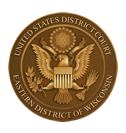After the defendant is served with a summons and a copy of the complaint, the defendant generally must file an answer to the complaint. Once the defendant answers the complaint, the judge usually will schedule a conference with the parties. The judge may decide to have the conference over the phone or in the court. During this conference, the judge will discuss scheduling further proceedings in your case. The judge will set a deadline for the parties to make their initial disclosures, as required by Federal Rule of Civil Procedure 26(a). The judge usually will also set deadlines for the parties to complete all discovery and to file dispositive motions.
During discovery, the parties exchange information about the case. This may include exchanging documents, presenting interrogatories (written questions), or conducting depositions. The discovery phase usually lasts a number of months.
At any point in the case, the parties may try to negotiate a settlement of their dispute.
